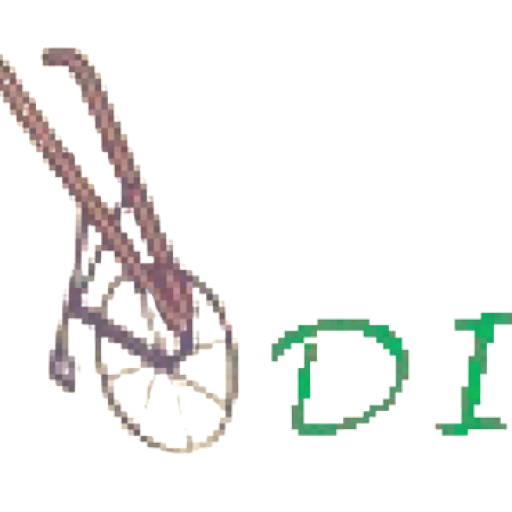Since its creation, ADI has rendered a wide range of consultancy and training services. It is noteworthy that the firm has adequate experience in multi sectors as evident from several assignments carried-out for a number of clients within the country. The firm has, on its pay role, extremely capable experts as well as professionals who are associated with its skilful work force. ADI is vowed to its vision and mission and is uncompromisingly committed to provide services of the very highest order to obtain complete client satisfaction.
Cold storage solution for reducing postharvest losses of fruits and vegetables in Bangladesh
(June 2023 – December 2024)
Project Location: Dhaka
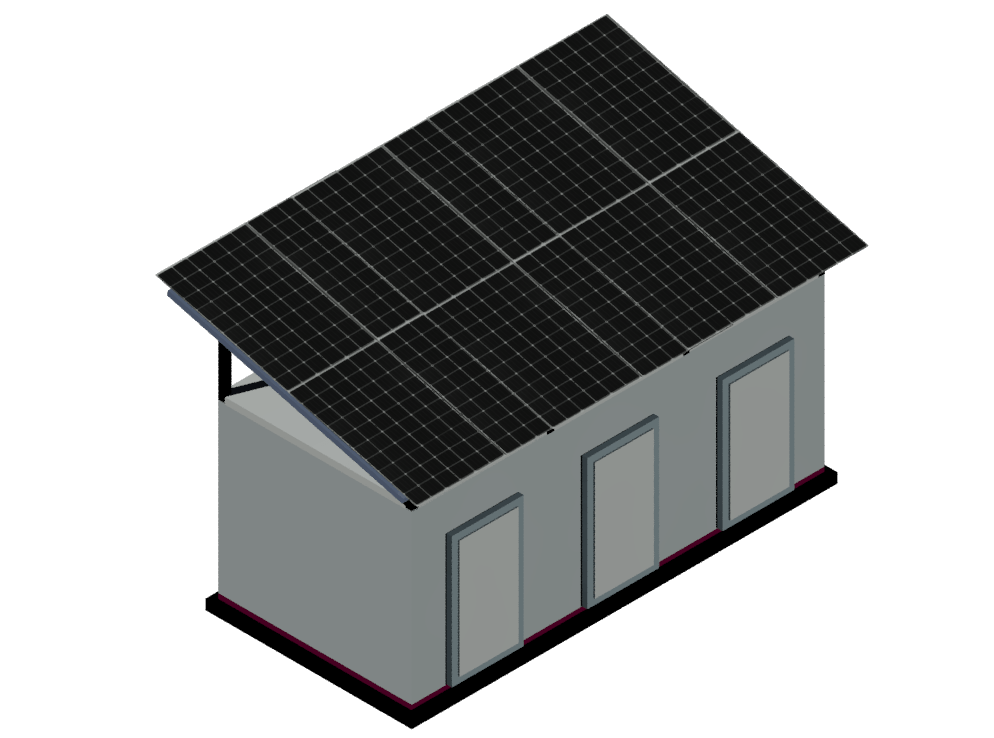
We made a big contribution to the agricultural engineering sector with our innovation in post-harvest loss reduction technologies, i.e., dry chain and storage chain of agricultural products, and also by designing a cold storage facility with an internal control system, IoT and GSM technology integration, and the use of a locally developed cooling solution. Our dedication to minimising spoilage and waste is further underscored by the addition of an ozone generator and UV disinfection system to our designed cold storage. Overall, our invention will benefit farmers and producers in Bangladesh and elsewhere by offering a long-lasting and affordable alternative for keeping fruits and vegetables. Our major contribution to the agricultural mechanization sector shows the potential of homegrown innovations to offer creative answers to societal problems. We have already created a prototype for a humidification system that is fully programmable, as well as an IoT and GSM-based data collection and control system that is currently being used in a BAU-IoT irrigation park and a mini weather station. A cold storage control system with the necessary microprocessor integration and prototype was also developed.
Smallholder Agricultural Competitiveness Project (SACP)
(March 2020 – September 2023)
Project Location: 30 Upazilas under 11 coastal districts

Smallholder Agriculture Competitiveness Project (SACP) has been designed to support production enhancement, identify market opportunities for both fresh and processed products, value added post-harvest management, build competitiveness in HVCs to move households from subsistence farming into commercial farming in southern region through three technical components supported by a project management component. They are: Component 1 – Enhanced production of HVC and technology adoption (DAE); Component 2 – Processing and marketing of HVC (DAM) and Component 3 – Climate resilient surface water management (BADC). Proposed Community Mobilization Agency (CMA) will be hired for component 3 to facilitate mobilization of smallholders water users into Water User Group (WUG) and Seed Village Group (SVG).
Geographic coverage: 30 upazilas of 11 southern region districts namely: (i) Bagerhat (Fakirhat, Kachua), (ii) Satkhira (Shyamnagar, Kaliganj)…
Read more
Micro-Agribusiness Development Component
(April 2014-December 2019)
Project Location: Chittagong Hill Tract Rural Development Project

MAD global objective: enhancing household income through promoting selected potential subsectors.
Identified sub-sectors: (i) pond and mini-lake fisheries, (ii) high-value crops, (iii) high- value fruits and, (iv) medicinal plants.
MAD Implementation Approach: (i) strengthening producers’ organizations & their CIGs; (ii) farmer study tour; (iii) technical assistance by training; (iv) linking with markets; and (v) linking with micro-finance.
Focused Area: Ensure access and capacity development of producers and other value chain actors in five areas: (i) product and marketing, (ii) technology in production, (iii) human resources management, (iv) finance and (v) support services.
MAD geographic coverage: 9 upazilas of 3 hill districts namely: Rangamati- (a) Sadar (b) Kaptai (c) Kawkhali;
Iodized Salt Value Chain Study
(January 2016-October 2016)
Project Location: Salt production area and divisional cities
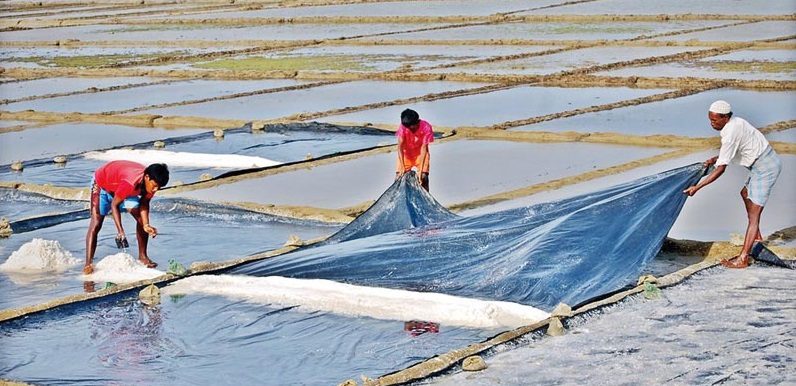
The main objective of the study is to conduct a comprehensive analysis of salt supply chain starting from the salt production field to consumer end via the manufacturers to assess the value addition at different points of the supply chain and develop a set of recommendations on the possible range of the quantum of reduction in the cost of production and cost of wholesale or retail purchase which may have implications on the purchase of iodized salt by every section of the society, whether poor or rich. The study analysis and findings also includes the macro picture of the supply chain which will be used as an informed source for MI’s future programming.
Services under Value Chain Study:
- Actual production or service cost at each segment of the supply chain of iodized salt and most feasible cost of iodized salt for consumers
- Identify key constraints and leverage points…
Jute Value Chain Study
(January 2016-October 2016)
Project Location: Greater Mymensingh

Objective of the Study: To understand the jute value chain as a whole to determine opportunities and viable business models to address problems faced by paddy farmers and other value chain actors. Specific objectives are-
- To understand the jute value chain including the government role and to estimate costs and margins for key value chain actors
- To assess technical/machine and business performance of jute processing
- To assess environmentally sustainability issues related to jute production and processing
- To explore potential and scope of working with cottage base jute inductries and other value chain actors (if any) to address the challenges faced by farmers
- To ascertain whether such engagement will result in improved market access for farmers …
Community Development and Monitoring, Evaluation, Accountability and Learning (MEAL)
(April 2014-October 2016)
Project Location: Teesta, Jamuna, Brahmaputra and Padma Chars

M&E activities of REE-CALL project of Oxfam has been carried out at three levels: (i) NGOs (SEED, Gonochetona & Polli Sree) will carry out internal monitoring, (ii) Monitoring, Evaluation and Learning Agency (Agency as MEAL) will be engaged to support Oxfam-GB in monitoring activities and preparing external/process monitoring and evaluation reports, and (iii) Management Information System (MIS) of MEAL will process data and convey M&E reports and learning issues/reviews to Oxfam-GB. Hence, to make the project successful, MELT will need to have an active role in project monitoring of intended activities.
Services under Baseline Survey :
- form and strengthen 350 producers groups of smallholders including jute groups
- gather baseline quantitative data and qualitative analysis and obtain information on ground realities in the targeted areas;
- design the Monitoring, Evaluation and Learning (MEL) framework;
- monitor project activities and outcomes on six monthly for…
Monitoring and Evaluation and providing MIS related support of Post Literacy and Continuing Education for Human Development Project-2 (PLCEHD-2) : Specialist Service Provider as Monitoring Partner Agency (MoPA)
(July 2009-Apr 2013)
Project Location: All upazilas (42) of Chittagong, Cox’s Bazar, B.Baria, Feni, Chandpur

Monitoring and Evaluation (M&E) is interlinked with the post literacy and continuing education (PLCE) programs so that the Project Implementation and Management Unit (PIMU) can take appropriate decision at any time analyzing all the data that it receives. In order to ensure effectiveness, monitoring, evaluation and reporting formats have to be simple, easy, and user friendly. The mechanism needs to be uninterrupted to ensure availability of quantitative and qualitative data to monitor the Project activities. M&E activities will be carried out at three levels: (i) INGOs will carry out internal monitoring, (ii) Monitoring Partner Agency (MOPA) will be engaged to support the implementing non-government organizations (INGOs) in monitoring activities and preparing external monitoring and evaluation reports, and (iii) PLCE-Management Information System (MIS) will process data and help the PIMU to prepare M&E reports and reviews. Hence, to make the project successful, MOPA will need to have an active role in project monitoring of INGOs. One MOPA will be engaged in each division of the country.
Objectives of the MOPA’s Assignment:
The main objectives of the MOPA are to (i) monitor the qualitative aspects of the implementation of the project activities, (ii) prepare consolidated analytical report…
Monitoring and Evaluation and providing MIS related support of Post Literacy and Continuing Education for Human Development Project-2 (PLCEHD-2) : Specialist Service Provider as Monitoring Partner Agency (MoPA)
(July 2009-Apr 2013)
Project Location: All upazilas (27) of Moulvibazar, Sylhet and Sunamganj

Monitoring and Evaluation (M&E) is interlinked with the post literacy and continuing education (PLCE) programs so that the Project Implementation and Management Unit (PIMU) can take appropriate decision at any time analyzing all the data that it receives. In order to ensure effectiveness, monitoring, evaluation and reporting formats have to be simple, easy, and user friendly. The mechanism needs to be uninterrupted to ensure availability of quantitative and qualitative data to monitor the Project activities. M&E activities will be carried out at three levels: (i) INGOs will carry out internal monitoring, (ii) Monitoring Partner Agency (MOPA) will be engaged to support the implementing non-government organizations (INGOs) in monitoring activities and preparing external monitoring and evaluation reports, and (iii) PLCE-Management Information System (MIS) will process data and help the PIMU to prepare M&E reports and reviews. Hence, to make the project successful, MOPA will need to have an active role in project monitoring of INGOs. One MOPA will be engaged in each division of the country.
Objectives of the MOPA’s Assignment:
The main objectives of the MOPA are to (i) monitor the qualitative aspects of the implementation of the project activities, (ii) prepare…
Read more
Design and Develop Result Based Monitoring and Evaluation System for POs
(January 2012-July 2012)
Project Location: Dhaka, Training Needs Assessment and Trial run in Jessore, Rangpur and Gazipur
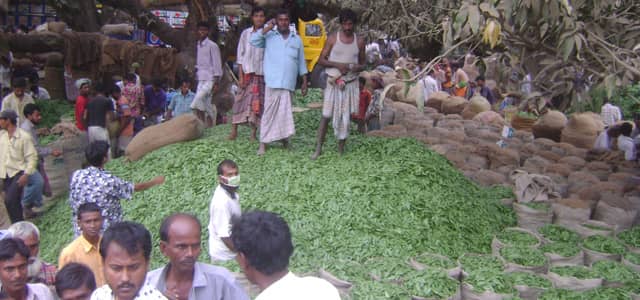
The main objectives of PKSF’s training program is to augment the skills and capabilities of the officials of PKSF as well as its Partner Organizations (POs) in different areas, which are necessary for performing the operational activities with a view to long run sustainability of PKSF financed programs.
In recent times, PKSF has widely diversified its programs in response to the demand of the fields. Due to these diversified operational needs, the range and intensity of PKSF’s activities have been excessively expanded. The officials of PKSF and its POs are now facing new challenges to implement these diversified and intensified programs. In order to run and implement the diversified program of PKSF and its POs should be enhanced. So, PKSF wants to develop some new training modules in relation with the changed demand of the fields.
Services under Baseline Survey :
- The firm will provide PKSF the detailed course outline to achieve the desired goal of the course
- The firm will finalize and take…
Technical Assistance to the Community-Based Action towards the Sustainability of the Sundarbans Reserve Forest- CBAS-SRF under Sundarbans Environmental and Livelihood Security (SEALS) Project
(November 2014-January 2015)
Project Location: Morelganj, Saronkhola, Mongla

The name of the project is “Our Forest, Our Life”: A Community-Based Action towards the Sustainability of the Sunderbans Reserve Forest (CBAS-SRF) is implementing since February, 2012. The Project is funded by the European Union and with the cooperation of Bangladesh Forest Department; World Vision Bangladesh is implementing the project. It’s a three years project and the activities are being undertaken in 15 unions of Morelganj, Sarankhola and Mongla Upazilas and Mongla Municipality of Bagerhat district and Bhandaria Upazila of Pirojpur district. These locations were selected because a minimum of 15% of their dwellers depend on SRF resources and the household members regularly go for extraction. The main activities are being implemented under employment creation and enterprise development, DRR, market development and value chain issues and total beneficiary is 20200. The stakeholder are SRF resource collectors, child collectors, Older girl and boy collectors, Disaster Management Committees, Co-management committees (CMC), Forest Department officials, Government administrative representatives in regular contact with SRF collectors, World Vision direct project staff, World Vision UK and other development agencies who are working with the Sunderbans forest resources collectors and the donor European Union…
Read more
Formulation of Disaster-preventive livelihood reconstruction project in the coastal region of selected municipalities in the districts of Barguna (Amtali Upazila) and Patuakhali (Kalapara), Bangladesh
(July 2009-October 2009)
Project Location: Barguna and Patuakhali
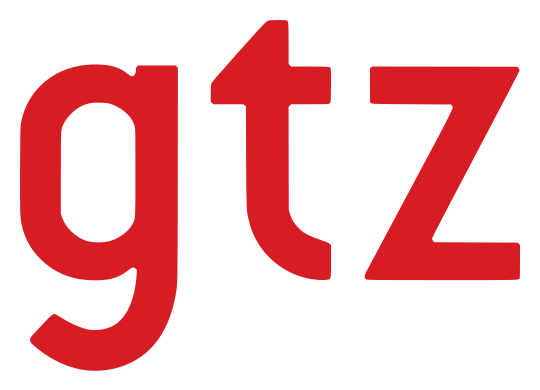
The German Federal Ministry for Economic Cooperation and Development (BMZ) has requested the Deutsche Gesellschaft für Technische Zusammenarbeit (GTZ) GmbH to submit an offer on development-oriented emergency and transitional aid in Bangladesh. The appraisal mission is to clarify the conceptual approach, and the executing and personnel structure for the project ‘Disaster-preventive reconstruction in the coastal region of selected municipalities in the districts of Barguna (Amtali Upazila) and Patuakhali (Kalapara)’. Project preparation is based on project proposal no. 22 from December 2008.
Services :
- draw up a plan of operations for the appraisal mission
- conduct a detailed analysis of the situation in the target region, specify the target region, identify options for interacting with existing processes in order to promote peaceful development, assess possible conflict potentials
- examine the capacities and contribution to be made by the…
Commission Study/Research on Climate Change Adaptation
Assignment 2: Action Research on the Adaptation Test of Improved Fodder Varieties in the Coastal Area of Bangladesh
(February 2014- June 2015)
Project Location: Southwestern coast of Bangladesh
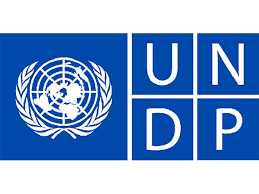
Comprehensive Disaster Management Programme (CDMP) is a project of Government of Bangladesh with support from UNDP and the host of development partners. The overall goal of CDMP II is to reduce the country’s vulnerability to adverse natural and anthropogenic events – including cyclones, hurricanes, floods, tidal surges, earthquakes, tsunamis, climate change and variability, avian flu, fire, toxic chemical/gas/pollutant leaks – through technical assistance in risk reduction and adaptation activities.
The study includes the secondary investigation/survey, setting-up of physical research plots of adaptation test of improved fodder and potential local varieties in the south-west coastal areas, collection and analysis of regular data/results. The sample areas include CDMP II districts in three (3) south-west coastal districts viz Satkhira, Khulna and Bagerhat. The action research takes place within a considerable period of 8 months (1-2 crop seasons) within the following scopes:
- Collection and review of technical papers, reports and publications that describe various improved fodder varieties…
Technical Assistance to Pollution Mitigation Project
(July 2009- October 2009)
Project Location: Dhaka City Corporation

To promote the mitigation and adaptation of environment pollution, the program facilitated 54 awareness sessions where 3560 community people, prepared 5500 brochures & distributed and installed 4 bill boards with environment pollution. Project also arranged a round table conference to advocate Ministry of environment and forestry to implement and monitor environment preservation policy, rules and amendments for “Improvement of Dhaka city air quality”. Project has anticipated that the improvement of air condition will decrease air borne diseases and health well-being of the children shall be secure in the long term.
Services :
- design and develop communication materials for awareness raising and public campaigning programs
- facilitated 54 awareness sessions where 3560 community…
Resource Mapping Survey and Studies to prepare an inventory of waterbodies and identify in digital mouza maps using GIS interface
(October 2009-March 2010)
Project Location: Dharmapasha, Sunamganj

Objective of the resource mapping exercises is to get an insight of pattern of land and resource use and document the biophysical and socioeconomic aspects of natural resources in the project areas for sustainable management of haor resources. The study team works with local UPs.
Services :
- prepare and produce resource maps of haor areas in original mouza maps (CS map) using PRA tools and prepare updatable digital form showing the resource (beels, khas land, ponds/khals), settlements, croplands, wetlands, swamp tree forest, reed lands, fallow lands, threshing areas, grazing areas, seed bed areas, sources of water, submergible dikes, degraded area, access arrangements in different water bodies and other natural resources;
- conduct feasibility study through PRA for community attitude towards the present usage/possessions/further development of…
Resource Mapping Survey and Studies to prepare an inventory of waterbodies and identify in digital mouza maps using GIS interface
(October 2010-March 2011)
Project Location: Dowarabazar, Sunamganj
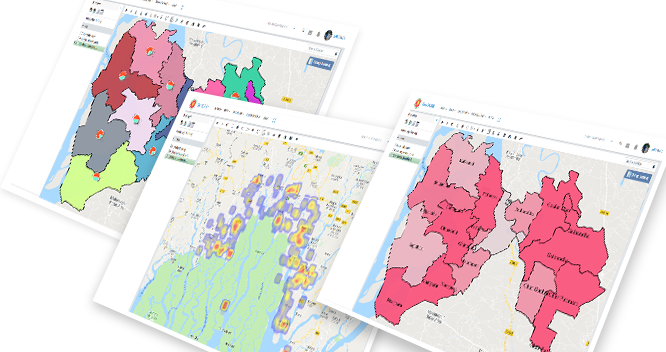
Objective of the resource mapping exercises is to get an insight of pattern of land and resource use and document the biophysical and socioeconomic aspects of natural resources in the project areas for sustainable management of haor resources. The study team works with local UPs.
Services :
- prepare and produce resource maps of haor areas in original mouza maps (CS map) using PRA tools and prepare updatable digital form showing the resource (beels, khas land, ponds/khals), settlements, croplands, wetlands, swamp tree forest, reed lands, fallow lands, threshing areas, grazing areas, seed bed areas, sources of water, submergible dikes, degraded area, access arrangements in different water bodies and other natural resources;
- conduct feasibility study through PRA for community attitude towards the present…
Baseline socio-economic survey under RDA developed low cost technologies in southern and hill districts of Bangladesh
(Sep 2011-Nov 2012)
Project Location: Southern and hill districts of Bangladesh

Action Research Project on Increasing Irrigated Area through Transferring RDA-model of Irrigation and Water Management Technology in Southern and Hill
The global objectives of the project is to meet up increasing demand of food and provide food security for uplifting the socio-economic condition of the rural household by transferring RDA-model of irrigation and water management technology in the non irrigated areas of southern and hill district areas.
Services under Baseline Survey :
Specific objectives of the baseline survey are as follows:
- to select potential site for intervention and assess present irrigation status and water resources
- to diagnosis of local NGOs capacity and assess their skill to handle..
Mid term Impact Evaluation of Regional Fisheries and Livestock Development Component (RFLDC) and Rural Road and Market Access Component (RRMAC)
(May 2011-Oct 2011)
Project Location: 37 Upazilas of greater Noakhali and Barisal region

RFLDC- DoF & DLS Component (Barisal and Noakhali)
Regional Fisheries and Livestock Development Component (RFLDC) began on October 1, 2006 and is scheduled to end on September 30, 2011. There are 2 (two) Technical Support Units (TSU) at field level, in Noakhali and Barisal, responsible for day-to-day management of the component activities. Each TSU is headed by a Project Director, who is supported by a Senior Advisor, appointed by Danida. The TSUs are expected to support GoB and NGO personnel working with the Components and to assist farmers’ organizations, local government and the private sector, who are the main Component stakeholders.
RRMAC – LGED
The Rural Roads and Market Access Component (RRMAC) forms part of the second phase of the Agricultural Sector Programme in line with the national strategy to reduce poverty that considers a good infrastructure as a pre-requisite for agricultural growth. The component supports rural roads and market access, building on the experience of the previous Transport Sector Programme Support…
Read more
Outcome and impact level study of interventions in the Agribusiness sector
(Nov 2008-Dec 2008)
Project Location: Comilla, B.baria, Noakhali, Feni Bogra, Chapai, Serajganj, Gazipur, Kishoreganj districts

IFC-SEDF has undertaken a series of activities geared towards strengthening the agri-business sector and addressing the critical constraints at all levels. The objective of this assignment is to analyze the outcome and the impact of IFC-SEDF interventions on the Seed, Agri-machinery and Organic fertilizer sub-sectors of Bangladesh.
Detailed Description of Actual Services Provided by Staff :
- Dialogue with key SEDF staff members to understand the business model for the interventions undertaken and the purpose of the current assignment
- Study the data which has already been collected
- Meet with the relevant bodies/beneficiary groups to collect up to date information where required
- Analyze the data according to the assigned indicators and other relevant indicators
- Develop sub-sector wise reports and case studies (where appropriate) from the data and information…
Baseline Survey in Morelganj ADP
(Jul 2011-Sep 2011)
Project Location: Morelganj, Bagerhat
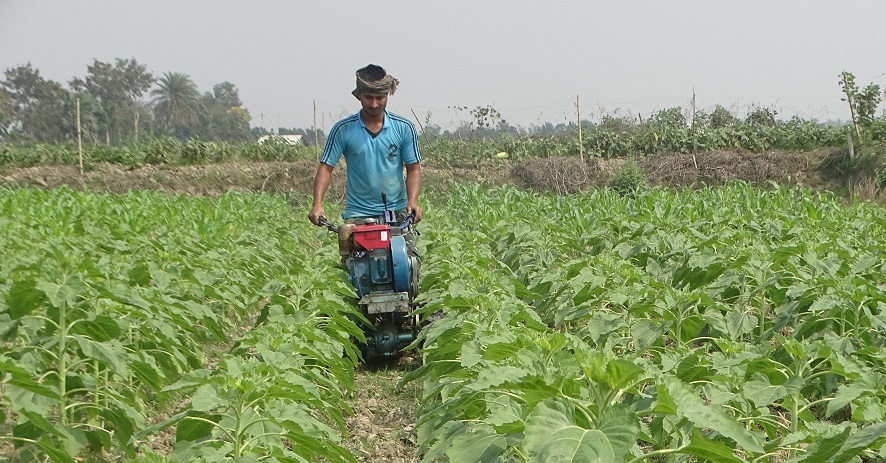
The objective of the survey is to provide estimates of selected socio-economic characteristics of the target population and baseline information regarding health, education, livelihood and sponsorship management – the four core pillars of Morelgonj ADP. These will provide a baseline for the assessment of progress during the implementation of four projects. At early stage of the survey, secondary information from review of literature would be collected. During baseline survey, estimates should be provided for the main areas if intervention that would be expected to show a measurable impact on households and individuals under different groups of the selected DG. The information might include measures of income and consumption, non-income welfare measures such as literacy and health status, economic activity, access to infrastructure and services, and measures of governance, gender and other development and empowerment indicators. Thus overall objective of the baseline survey is to assess the baseline situation of all projects included in ADP focusing primarily at outcome levels…
Baseline Survey in Assasuni ADP
(Aug 2011-Sep 2011)
Project Location: Assasuni, Satkhira

Assasuni ADP’s design draft document accumulated with four projects like: Health, Education, Livelihood security and Sponsorship Management. Each project draft design document is accompanied with project log frames; detailed implementation plans (DIP) by phase & annual, M&E plans and program and project performance indicator tracking tables.
As a baseline survey provides a current actual data from which a comparison can be made; and ideally, a baseline is conducted prior to the beginning of the project interventions and becomes the point of comparison for monitoring and evaluation data; and the bulk of baseline survey focuses on the intended outcomes of projects; and LEAP specifically emphasizes to conduct a baseline within first year of implementation phase, Assasuni ADP authority has decided to conduct baseline survey for their projects. It would be helpful for targeting for next phase…
Baseline Survey in Patenga ADP
(Jul 2011-Sep 2011)
Project Location: Patenga, Chittagong

The objective of the survey is to provide estimates of selected socio-economic characteristics of the target population and baseline information regarding health, education, livelihood and sponsorship management – the four core pillars of Patenga ADP. These will provide a baseline for the assessment of progress during the implementation of three projects. At early stage of the survey, secondary information from review of literature would be collected. During baseline survey, estimates should be provided for the main areas if intervention that would be expected to show a measurable impact on households and individuals under different groups of the selected DG. The information might include measures of income and consumption, non-income welfare measures such as literacy and health status, economic activity, access to infrastructure and services, and measures of governance, gender and other development and empowerment indicators. Thus overall objective of the baseline survey is to assess the baseline situation of all projects included in ADP focusing primarily at outcome levels…
